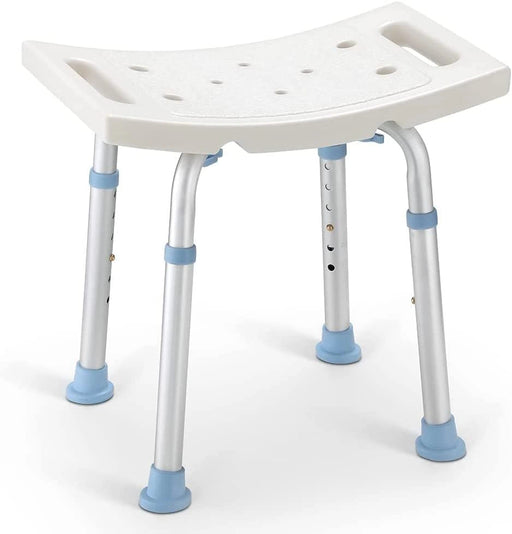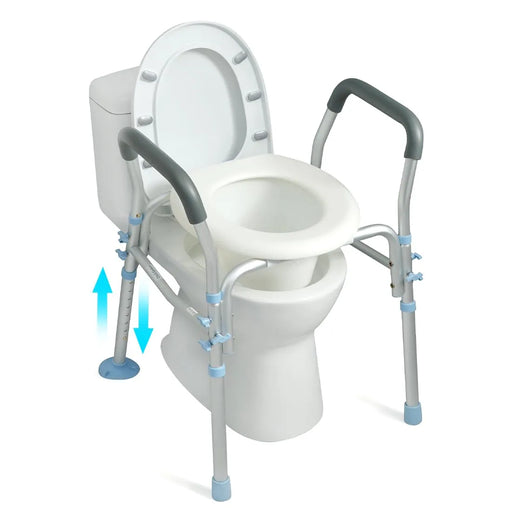3 Best Alternatives to Crutches
Are you experiencing leg, knee, or foot problems due to an injury or medical condition? If this is the case, crutches may be an effective way to take the weight off of the injured area and assist you in getting around.
As long as you are still mobile and have good strength in your upper body, crutches are a great choice. When you use crutches properly, you can walk pretty quickly. By using crutches, you can move at your own pace and have more control over your movements. Additionally, crutches are an affordable option for people who are on a tight budget. It is relatively inexpensive to buy a pair of crutches, and there is no need for a prescription. Crutches can be purchased online or at any local medical supply store.
In addition to their benefits, crutches also have some drawbacks. Using crutches, in particular those with underarm grips, can cause discomfort, which can be a primary disadvantage. If you use crutches for an extended period, they can wrinkle your clothing, causing irritation to the underarms. Your upper body is also significantly restricted if you use crutches. You may have difficulty moving things, opening doors, and doing other activities when your arms and hands are occupied by your crutches. There would also be times when the crutches simply can't fit through the doorway.
Since they are not perfect, consider an alternative to crutches than a simple pair of crutches to help you get back on your feet more quickly and with less discomfort.
Canes

Most seniors rely on canes as their primary and most standard type of walking aid. Our balance will begin to deteriorate when we reach our seventies and a cane can be a great aid when it comes to stability, as well as reducing strain on the legs and being easy and portable to carry around. A "standard" cane measures 36 inches long, which is a good height for most, but that can also be adjusted to the user's needs. As a non-intrusive alternative to crutches that still allows for a great deal of independence, a cane can be very useful if you're concerned about falling. Using a cane, a person is able to support their weight and help transfer some of their low-body weight to their upper body.
In spite of the fact that canes take the load off the lower body to assist with walking, they put more strain on the hands and wrists. If you have smaller muscles in your upper body or problems with your arms or hands, a cane might not be the best walking device unless you will only use it occasionally. However, 1/10 of all seniors over the age of 65 use a cane in the states, so to some extent, they are the decent alternatives to crutches
Wheelchairs

As alternatives to crutches, wheelchairs also have a similar design that has existed since the year of 1783. They are much more convenient than crutches since they allow you to carry things on your lap or a tray. They are the most stable option of the three alternatives to crutches presented in this article because they don't require balancing. When injured legs cannot bear any weight, a wheelchair is a suitable option for people who have difficulty balancing or lack upper body strength. Furthermore, they could be appropriate for people who will need an alternative to crutches for knee injury for a long period instead of recovering in a few weeks or months. It isn't necessary to move to a seated position when you put your wheelchair at your desk or dining table.
Wheelchairs have a significant size disadvantage. While many models are foldable to allow easier transport, this usually requires someone to accompany you when getting in or out of the device. Also, they're challenging to maneuver through confined spaces and are not suitable for stair climbing. The wheelchairs work your upper body, but they do nothing for the leg that was not injured, which means that both legs will be weaker after you start walking again.
Knee Scooters

In the world of mobility aids, knee scooters or knee walkers are quite recent inventions that have gained popularity quite rapidly. It can be said that they combine the best parts of crutches and wheelchairs. While scooters offer the ease of portability of crutches, they also provide similar stability to a wheelchair. Despite being unable to carry items on your lap, knee scooters come with a basket to make carrying items easier. A knee scooter can also provide a comfortable spot to rest your leg, ankle, or foot while you are recovering from injuries. Moreover, they are more independent alternatives to crutches and allow you to do daily tasks and move around without sacrificing your arms and hands. Using a mobility aid while still maintaining an upright position makes it possible to do things you would normally do whilst standing - like washing your hands or cooking at the counter. As you recover, they keep your uninjured leg working so that it won't become weaker.
The knee scooter does have some shortcomings compared to other alternatives to crutches in this article, however. Even if it is smaller than a wheelchair, if it does not fold, it would still be challenging to transport. Also, a knee scooter will not be able to help if your knee has been injured. And it's the more expensive mobility aid option here, so make sure you weigh its benefits against the higher price.
Ending
When it comes to choosing the right alternatives to crutches, health is the most important factor. What actions are you not able to accomplish and how long can you stand? Canes are recommended if you only have minor standing/walking difficulties. Choosing a knee scooter or wheelchair may be more appropriate if walking and standing present a greater challenge.
Remember to take care of your lifestyle. Take the time to consider how active you are when picking up an alternative to crutches. People who lead an active lifestyle may be on their feet performing a variety of different activities. Depending on how active an individual is, two people with the same mobility issues may need different mobility aids. Additionally, mobility tools and aids are designed to bear a certain amount of weight. Be sure to choose an alternative to crutches that can support your weight.
The environment in which you live could heavily influence which mobility device you need. A walkthrough of the house is important to identify any stairs, tight spaces, and doors that could impede mobility. Places you frequently visit (such as parks, workplaces, and groceries) should be considered. Many people forget about this and end up in trouble.
It is necessary to verify your insurance coverage for the alternatives to crutches you require. A budget can deter someone from getting the right mobility aid. Choosing a model that meets your needs and falls within your budget.
Last, if you're not sure which alternative to crutches is appropriate for you, talk to a medical professional.
Recommend Products
-
 Sale
Sale
Standard - 300LBS Capacity Shower Stool
Original price $51.99From Original price $29.99Original price $51.99Current price $29.99From $29.99Current price $29.99OasisSpace Medical Square Shower Stool for Bathtub OasisSpace Square Shower Stool for Bathtub is approved as the highest standard(FDA) for medical...
View full detailsSaleOriginal price $51.99From Original price $29.99Original price $51.99Current price $29.99From $29.99Current price $29.99 -
 Sale
Sale
300LBS Capacity Raised Toilet Seat with Arms
Original price $120.99From Original price $69.99Original price $120.99Current price $69.99From $69.99Current price $69.99OasisSpace Raised Toilet Seat with Arms - Safe and Convenient OasisSpace Raised Toilet Seat with Arms provides stable support for users to sit dow...
View full detailsSaleOriginal price $120.99From Original price $69.99Original price $120.99Current price $69.99From $69.99Current price $69.99



